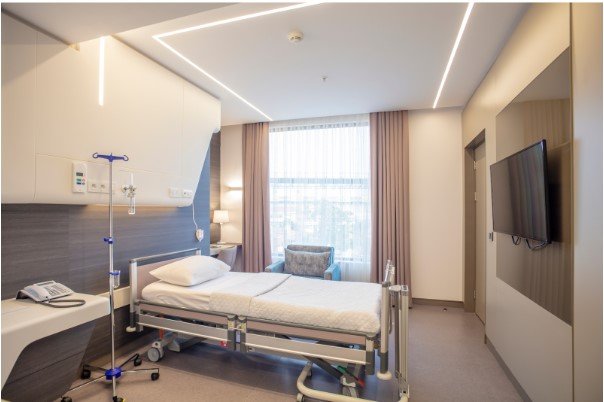Recovering from trauma surgery doesn’t end when the stitches are closed or the swelling goes down. For many patients in Singapore, the aftermath brings another hurdle: stress. Whether physical or psychological, post-surgical stress can cloud judgement, delay healing, and affect long-term recovery. Knowing how to manage this stress can significantly influence outcomes. With the guidance of a trauma surgeon and continued support from a trauma centre in Singapore, patients can take active steps to regain control. Here are nine grounded and practical strategies for navigating post-surgical stress effectively.
1. Understand What’s Normal and What’s Not
Stress responses after a traumatic injury and surgery are to be expected. Feeling anxious, tired, or emotionally flat is a common physiological reaction. However, ongoing panic, persistent nightmares, or avoidance behaviour might signal post-traumatic stress disorder (PTSD). Recognising early signs helps patients and their care teams intervene before symptoms become chronic. Trauma centres in Singapore typically include psychological screening in their post-operative care pathways—use this service rather than dismissing concerns.
2. Stick to a Structured Daily Routine
After surgery, unpredictability can become overwhelming. Establishing a simple, repeatable routine helps restore a sense of order. Getting up at the same time each day, following scheduled medication, and allocating short walks or seated activities all create predictability. Trauma surgeons frequently highlight how vital routine is to effective physical recovery. A structured day reduces decision fatigue and builds a sense of purpose during recovery.
3. Engage in Guided Physical Activity
Movement after surgery can feel daunting, but inactivity often worsens anxiety and sleep issues. Under supervision from a trauma centre in Singapore, patients should gradually engage in light physical therapy. Even small goals like sitting upright for longer or taking a few extra steps support circulation and mental clarity. Gradual physical improvement lifts morale and helps prevent stress from lingering.
4. Reduce Time Spent on News and Social Media
After trauma surgery, mental bandwidth tends to narrow. Flooding the brain with external stressors, like grim news or excessive scrolling, only adds pressure. Limit screen time, particularly in the evening. Instead, engage in calming activities such as reading, listening to music, or guided breathing exercises. Trauma centres sometimes include occupational therapists or counsellors who offer strategies to manage digital overstimulation.
5. Prioritise Consistent Sleep Habits
Sleep often suffers during surgical recovery due to medication schedules, discomfort, or anxiety. Prioritising consistent sleep habits like going to bed and waking at the same time, limiting caffeine, and limiting screens before bed, helps recalibrate the body’s natural rhythms. A trauma surgeon may also adjust medications that interfere with sleep. Poor rest exacerbates stress levels, so it’s not a luxury—it’s a key part of healing.
6. Speak With a Mental Health Professional
Trauma recovery requires more than physical repair. In many cases, surgical trauma is tied to accidents or high-impact events, making emotional processing crucial. A trauma centre in Singapore can refer patients to licensed psychologists familiar with trauma-related stress. Early intervention helps patients understand their triggers and develop healthier responses. Waiting too long to seek help can make symptoms harder to manage.
7. Maintain Nutritional Discipline
Stress can disrupt appetite or lead to poor food choices. Yet, proper nutrition plays a direct role in healing and mood regulation. Focus on balanced meals rich in lean protein, complex carbohydrates, and essential fats. Stay away from processed foods and sudden sugar highs, as they may worsen tiredness or mood swings. Many trauma centres offer dietary guidance post-surgery so, take full advantage of it.
8. Set Clear Recovery Goals With the Medical Team
Post-surgical stress can grow when progress feels vague or stagnant. Setting clear, attainable goals with the trauma surgeon or care team keeps recovery structured and measurable. Whether the goal is increased mobility, reduced pain, or better sleep, having markers of progress provides mental reinforcement. At a trauma centre in Singapore, multidisciplinary teams can coordinate these benchmarks for clarity and continuity.
9. Involve Trusted Family or Friends in Your Recovery
Isolation intensifies stress, especially when mobility is limited or communication feels strained. Involve a small, reliable circle in recovery. They can attend appointments, help track symptoms, or simply offer a familiar voice during uncertain moments. Trauma recovery doesn’t have to be solitary, and support systems can ease both emotional and logistical burdens.
Trauma surgeons and specialists at a trauma centre in Singapore understand this and often work closely with patients to ensure the stress of recovery doesn’t derail progress. Contact the National University Hospital (NUH) to explore the next steps in your recovery journey.

